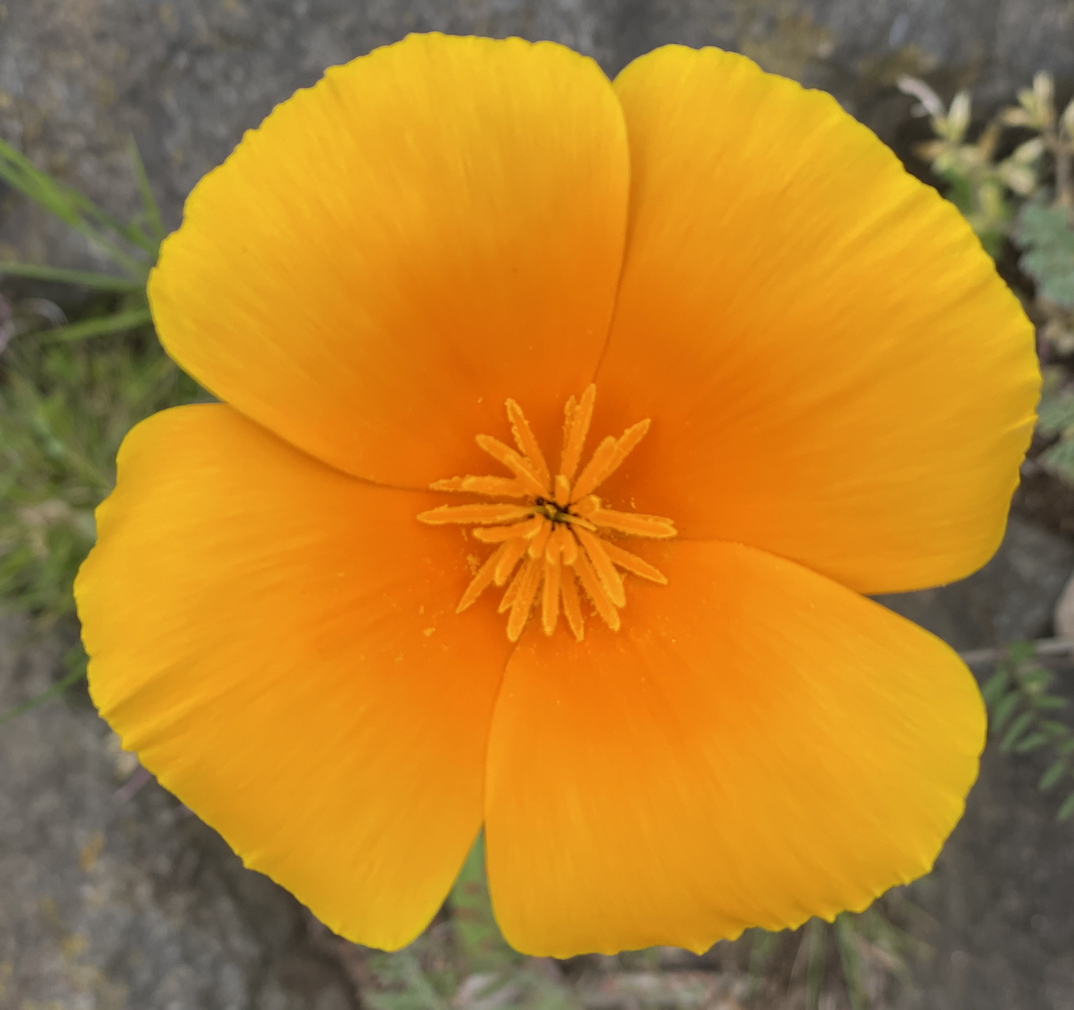
Spring is the time for orange poppies! These brilliantly beautiful herbs grow like weeds, are native to Western US and are abundant with their medicine. This herb has been used for a long time and has a rich history with many of the Native tribes throughout the western coast. The California poppy, Eschscholzia californica, is not the opium poppy but a much milder cousin. The whole plant can be used. It belongs in an herbal category called nervines, which refers to the calming effects these herbs have on the nerves or nervous system. This little beauty is gentle, mildly relaxing, and has an approachable flavor when brewed as a tea. It is even safe for older children in smaller doses.
This flower is perfect for the PNW Spring, it opens its buds when sunny and bundles up when it’s rainy or cloudy. An excellent adaptation for the unpredictable weather! This plant supports us to sleep deeply and to stay calm as we get through our Spring cleaning and begin entering longer days with busier schedules. The California poppy supports proper sleep, relieves mild anxiety and agitation and has mild analgesic properties. Think of California poppy when you can’t sleep because you’re anxious or tense.

Feeling the foraging itch? Hawthorne flower (Crataegus spp.) also blooms in Spring, grab a handful of fresh leaves or the deliciously stinky white flowers, dry them and add to your California poppy tea for extra support with those racing thoughts or hurried longer days. The common weed, Lemon balm (Melissa officinalis) is another good pairing with California poppy, especially if you are one who feels their anxiety in their gut. The image provided is what the herb (stalks, leaves and flowers) look like when dried and ready for tea.
Note of caution: If you decide to really go heavy on this herb, know that it may cause some drowsiness when taken in larger quantities and one should avoid driving or operating heavy machinery until they know the effect this herb has on them. Some people experience a mild headache the next day if they use too much. Although, I’ve yet to hear a first-hand experience of either of these effects, they are noted in the literature and those particularly sensitive should seek advice from their Naturopath or local herbalist before consuming. This plant contains isoquinolone alkaloids, so avoid when pregnant or breastfeeding. Never harvest an herb for personal use unless you are certain of its identity.

Disclaimer: The information provided on this website is for informational purposes only and should not be construed as personal medical advice.

